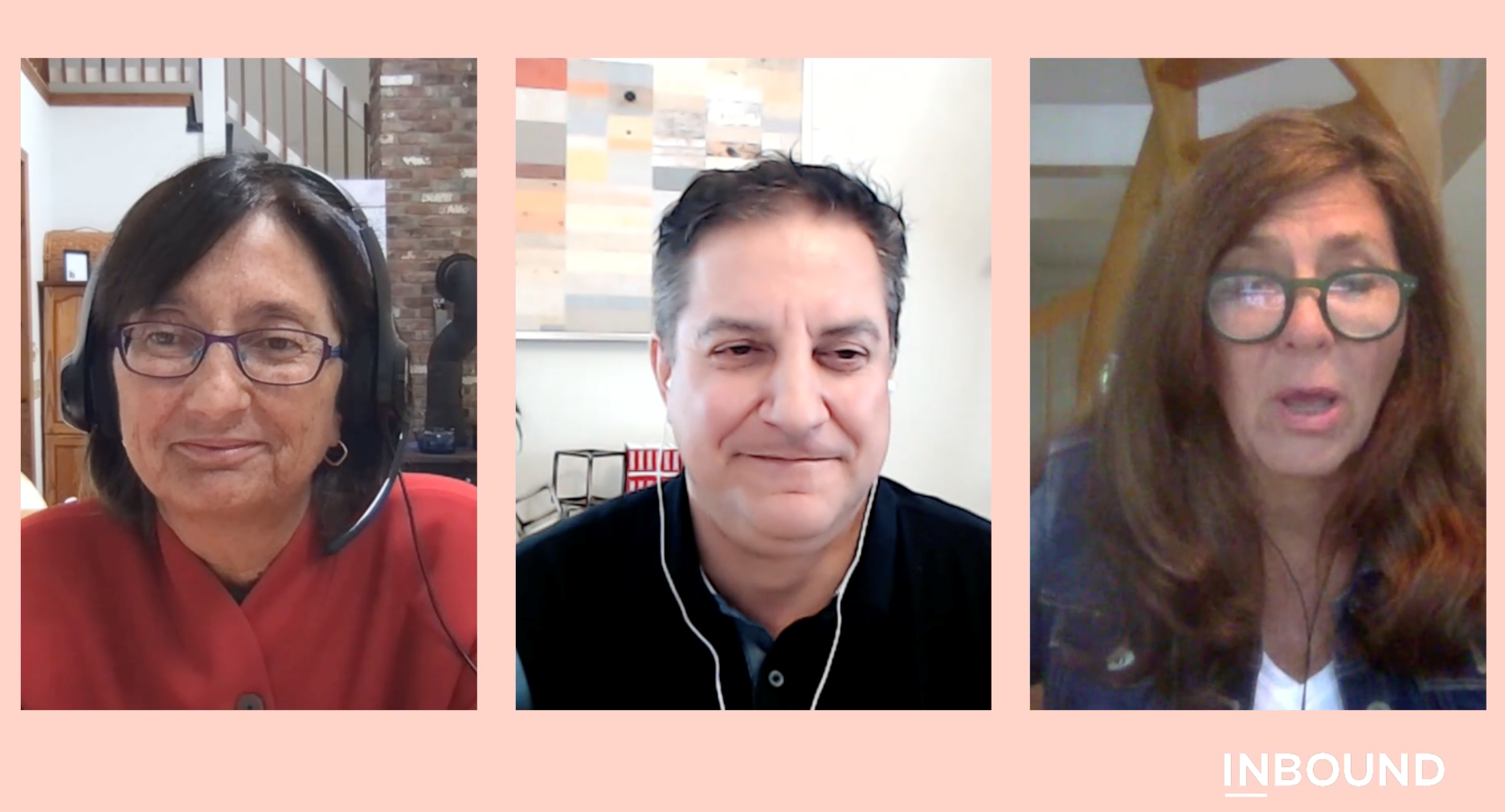2 min read
#INBOUND2022 Marketing Rules of Thumb: "Trust it" or "Bust It"
![]() Dom D'Angelillo
:
07-Sep-2022 17:50:14
Dom D'Angelillo
:
07-Sep-2022 17:50:14

LIVE FROM #INBOUND22
There are so many so-called 'rules of thumb within marketing.
Things like "keep your copy short", "lead with the customer's problems", "be relatable" or "feature positive testimonials". The problem is, this advice isn't universal, while sometimes it helps other times it can be a hindrance.
In this 30-minute digital session at INBOUND22, Nancy Harbut, Tom Shapiro and Jen Wiese, some of the most established marketing copywriters worldwide provided advice for "trusting" and busting" certain marketing principles exploring four key "rules of thumb."
Copy Should Be Short
The regular question we hear at Insynth from our clients is "how long does copy need to be?". In typical inbound fashion it's very much "it depends".
As Tom suggests "everyone is keen to cram all the information they have on their product or business into a single page. Is this the most effective way? The answer is no".
For webpages, product information or about us sections it needs to be short, snappy and punchy in order to maximise results. The tip for Tom is "edit, edit edit".
Nancy on the other hand suggests long copy can be your friend. The behavioural scientist suggests that the 'binge-watching' culture can be capitalised on. "People don't have as short an attention span as you would think.
You Should Have Social Proof
When selling, you need some evidence that your building product has done the job previously. Tom describes the social proof as the “lighter fluid to enhance your results”. Whether it’s case studies, testimonials reviews or endorsements, it’s all relevant to supporting the wider content.
This is essential within the construction industry.
Nancy took a different angle however. While she admitted it can be “awesome” she suggests it needs to be sued correctly.
If you have anew product, you can’t lean on hundreds of reviews, and likewise it can backfire. Givign the example of life insurance, if the social proof is “65% of people wait to get it”, then the prospective is going to think the same and move on.
It’s all about using the right information at the right time, tying into the wider inbound philosophy.

Marketers Should Focus On Benefits
Think about yourself. When in the market do you care about the companies success stories and offices around the world or would you rather know what benefits they can bring?
That’s what Tom suggests.
You can have the best building product in the world with the most innovative features, but your customer wants to know the benefits.
Nancy agrees but takes a different approach considering loss aversion in her messaging. If the message is about missing out, or avoid pain, people may be more susceptive.
Exclusivity is A Sure Way To Buy
People go crazy for limited edition runs of trainers or 1 of 1000 products. That’s because they want to be exclusive, Tom argued. There’s an entire layer of the economy around it, why do Bugatti’s exist after all?
Consider a webinar, would you be more likely to sign up after looking at the benefits or after realising there are only 10 seats left? That exclusivity can work in your favour.
But exclusivity can be a test from Nancy’s point of view. What if you’re one of the first and it doesn’t work out? It’s a question of when, sometimes it’s smart to avoid exclusivity, other times social proof is better.
Closing Thoughts
The first of many no doubt insightful seminars at INBOUND22.
When it comes to construction, there's a lot to take away and consider. Social proof is everything, combining that with snappy, relevant copy and explaining the benefits is the bread and butter of content marketing.
A huge thanks to Nancy, Tom & Jen for a fantastic 30minute session.
